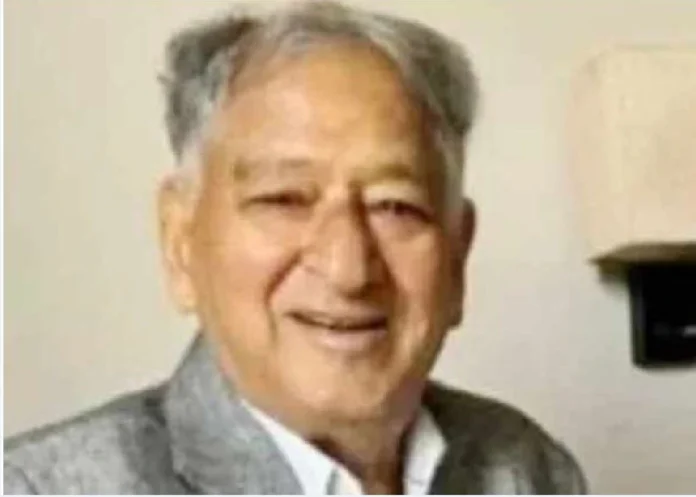India Legal (IL): If we look at your life, you have dedicated a significant part to the legal profession. How do you view the journey?
Justice VK Gupta (VKG): One word comes to mind: “satisfactory”. When I reflect on the past 50 years of my life, I feel a sense of goodness and satisfaction. I never felt anything lacking in my life. I was a lawyer, a litigation lawyer, and I still wish to be a litigation lawyer in my next life. It was never lacking; it has always been a very good experience.
IL: Tell us something about your early life and family background.
VKG: We originally hail from Kashmir. In October-November 1947, Pakistani raiders attacked our district, forcing us to flee and become refugees in Jammu. As a result, our district became part of Pakistan-occupied Kashmir. I was born there in September 1947. My father was a medical practitioner, although he wasn’t formally qualified. However, he inherited the profession from his father, grandfather, and great grandfather. My mother was a homemaker, and I have three sisters.
IL: You are a first generation lawyer. What are the challenges and difficulties first generation lawyers face?
VKG: First generation lawyers face significant challenges. Initially, it is hard to find a senior advocate to learn from, as established seniors often have multiple juniors. Even if you find a good senior, you may work unpaid for years. I earned only Rs 65 in my first two years, despite working diligently.
Another hurdle is the lack of opportunities. Clients prefer established lawyers, making it difficult for new lawyers to prove themselves. This is particularly challenging for first generation lawyers, as they don’t inherit clients or cases from family members.
IL: When you assumed the role of Chief Justice of the Jharkhand High Court, it was a new state for you. How would you describe that experience?
VKG: When I assumed the role of the chief justice of the Jharkhand High Court, it was a new state for me. I was previously serving as a presiding judge in the Calcutta High Court. Establishing a new administrative framework in Jharkhand posed significant challenges, given its underdeveloped infrastructure compared to my previous postings in Kolkata and Jammu and Kashmir. During my two-and-a-half-year tenure, I oversaw the construction of court buildings, judicial residences and chambers for the Bar Association. I also facilitated numerous appointments, ranging from clerical staff to lower court and district judges. Although it was a demanding task, but I derived immense satisfaction from successfully executing these responsibilities during my two-and-a-half-year tenure.
IL: In recent times, freedom of expression has been often misused. How do you see the problem?
VKG: I hold extreme views on this. Freedom of expression, a fundamental right under Article 19, inherently includes reasonable restrictions. Numerous judgments—over 50—have defined these restrictions, such as protecting public order, national security and foreign relations. However, personally, I believe there should be no restrictions on freedom of speech. People should decide what is right. Content creators cater to specific audiences. Our country is not isolated from the world; other nations adopt the approach: “let the public decide”. When governments control freedom of expression, it often becomes excessive. The misuse of sedition laws in India has been particularly egregious in recent years.


